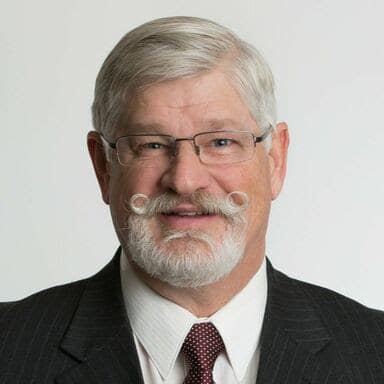False ideas are the greatest obstacles to the reception of the gospel. We may preach with all the fervor of a reformer and yet succeed only in winning a straggler here and there, if we permit the whole collective thought of the nation or of the world to be controlled by ideas which, by the resistless force of logic, prevent Christianity from being regarded as anything more than a harmless delusion. Under such circumstances, what God desires us to do is to destroy the obstacle at its root.
—J. Gresham Machen in “Christianity and Culture”
Contemporary discussions of Christianity and culture almost always begin with an analysis of the “ideal types” that H. Richard Niebuhr developed in Christ and Culture. So prominent have Niebuhr’s categories become that one might overlook the fact that Christians were writing and thinking about culture for a very long time before Niebuhr came along. One writer who contributed to this discussion was J. Gresham Machen.
Machen’s essay on “Christianity and Culture” was one of his earliest published works (Princeton Theological Review 11 [1913]). It built upon a lecture that Machen had delivered on two earlier occasions: “The Scientific Preparation of the Minister.” It is decades older than Niebuhr’s work, and it also antedates Machen’s acquaintance with Cornelius Van Til. It cannot be accused of Kuyperian “neo-Calvinism,” but most likely reflects the influences of William Park Armstrong, Machen’s mentor at Princeton.
When Machen wrote about culture, he meant primarily high culture: the arts and sciences, poetry, philosophy, and the like. His special focus was upon academic culture, i.e., the cultivation of the intellect and the life of the mind. The specific problem that the essay addressed was the gap between piety and knowledge, or between what Machen called the “practical tendency” and the “scientific or academic tendency.” As he saw it, every Christian wrestles with the balance between two activities: the acquisition of knowledge and the inculcation of faith.
According to Machen, people attempt to strike this balance in two ways. Some wish to subordinate Christianity to culture. Others try to destroy culture (or at least treat it with indifference) in the interest of faith. While Machen did not say so in his essay, the first approach is one that he later identified with religious liberalism. The second is the tendency that he saw in fundamentalism.
The problem with subordinating Christianity to culture is that it eliminates the supernatural and reduces Christianity to the level of a merely human product. In other words, Christianity becomes nothing but an aspect of human culture. On Machen’s view, this approach was incompatible with revealed religion, supernatural authority, and, indeed, with the gospel itself.
Destroying or ignoring culture, however, amounted to obscurantism. For Machen, Christianity could never be upheld by ignoring evidence. If a real conflict could be discovered between reason and Christianity, then Christianity would have to be abandoned or at least modified (here Machen’s difference with Van Til is significant). Even if the faith were not at stake, culture would still be worth pursuing. Machen believed that both the intellectual and aesthetic capacities come from God. These capacities were created to be used. Scripture displays no lack of appreciation for them.
For Machen, neither conceding to culture nor ignoring it could bring the proper balance to Christianity. Instead, he proposed a third alternative: the consecration of culture. Machen insisted that Christians ought to cultivate the arts and sciences “with all the enthusiasm of the veriest humanist,” but they ought to do so to the service of God. Such a program of cultivation is necessary because Christianity faces a real danger if it allows any sphere of human activity to continue opposed to, or even disconnected from, Christian understanding.
According to Machen, culture exerts a definite influence upon the human mind. What we receive from culture conditions the mind toward either the acceptance or the rejection of the gospel. If the collective thought of society is dominated by ideas that prevent Christianity from being taken seriously, then even the best preaching will produce only meager results. Christians cannot permit that to happen. For Machen, the only solution was to confront false thinking at its sources, to truncate its influence before it was able to reach the popular mind. In this sense, it turns out that Machen did believe in the destruction of culture.
For Machen, the difference between these three approaches was more than theoretical. He had already provided an example of his approach in his earliest articles, published while he was a student at Princeton (“The New Testament Account of the Birth of Jesus,” first and second articles, in Princeton Theological Review 3 and 4 [1905-1906]). There he examined the New Testament accounts of the virgin birth of Christ, not as theological statements, but as historical narratives. He asked whether the narratives should be seen as factual or as mythical.
Machen recognized that Christians had a powerful incentive to defend the virgin birth because it was a fundamental fact of the Christian faith. Though he might have been expected to argue backward from theological necessity to the historical actuality of the virgin birth, he did exactly the opposite. Theology, he said, depends at least partly on the historicity of the events. Interestingly, he admitted that the historical evidence for the virgin birth of Christ is not conclusive. Therefore, a decision about the historicity of the virgin birth hinges upon one’s prior conclusions regarding the possibility of miracles in general. If one begins by dismissing the possibility of miracles, then the narratives of Jesus’ birth will be unconvincing. If, however, one begins with a prior belief in the miracle of Jesus’ resurrection, then one will find the evidence against the mythological interpretation of Jesus’ birth to be insurmountable.
This was a surprisingly modest conclusion, and it indicates his reluctance to retreat from a serious confrontation with the evidence into a faith that neglected the concerns of intellectual culture. His subsequent study in the German universities further illustrates this commitment. There he was taught by cultured intellectuals who challenged the historical and factual nature of Christian affirmations. He refused to shrink from the honest examination of the evidence, even when he understood that Christianity itself was at stake. For Machen, intellectual dishonesty was a greater sin than unbelief.
In sum, Machen believed that culture (understood in the sense of high culture) was extremely important. The categories that one received from one’s culture either enabled or disabled the understanding of biblical Christianity. Consequently, culture was far too vital simply to be ignored, and it could not be destroyed without doing injustice to our humanity. On the other hand, culture was not simply to be given the final word. Where culture enabled a right understanding of Christianity, it had to be nourished and fostered. Where culture challenged Christianity, its claims had to be faced squarely. If Christianity was to maintain its plausibility, then the possibility of its claims had to be vindicated.
Machen believed that at least some Christians had to be persons of culture—including the culture of high learning. This duty arose partly because intellectual and cultural abilities are gifts of God, valuable in their own right. More than that, persons of culture would be necessary to nourish culture where it was true or to overthrow it where it was false. The neglect of culture, however, constituted a sin for which Machen exhibited little patience.




